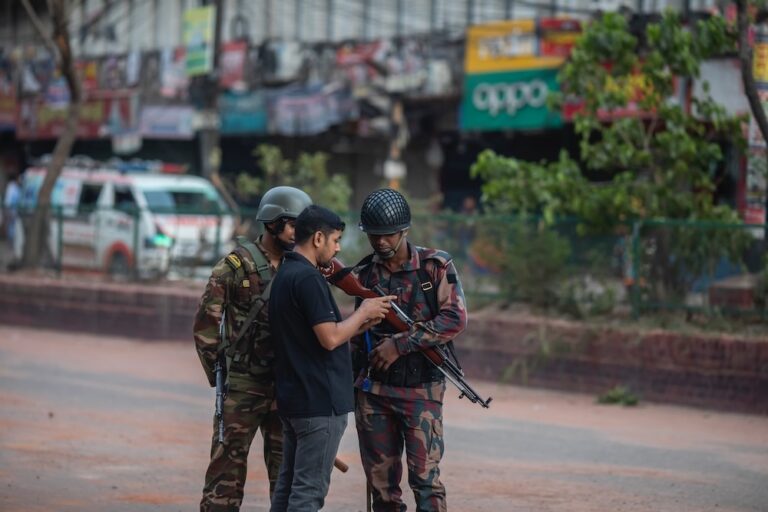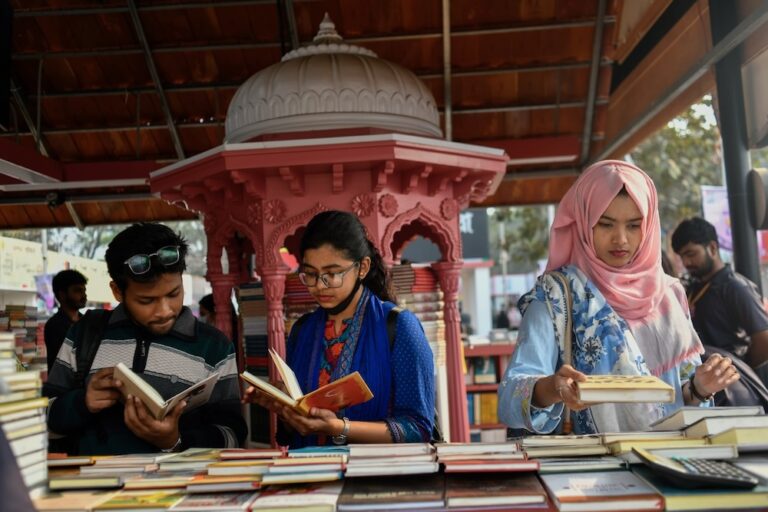(Media Watch/IFEX) – The following is an 18 March 2002 Media Watch press release: Today, the High Court ruled that Ekushey Television’s (ETV) license is illegal. ETV is the first private TV station in the country operating for more than two years. The verdict was issued in response to a writ petition filed in September […]
(Media Watch/IFEX) – The following is an 18 March 2002 Media Watch press release:
Today, the High Court ruled that Ekushey Television’s (ETV) license is illegal. ETV is the first private TV station in the country operating for more than two years. The verdict was issued in response to a writ petition filed in September 2001 by two Dhaka University teachers and a journalist. The petitioners questioned the legality of ETV’s licence and the contract with state-run Bangladesh television (BTV), that grants the station use of BTV’s technical support. The petitioners noted that the contract, set in place under the previous Awami league regime, resulted in a huge loss for the government.
Pioneered by ASMahmood along with a group of business magnates, ETV soon earned popularity with television viewers for its varied programming and independent news coverage.
A High Court division bench stated in its verdict that ETV’s operation licence was not legally issued and that BTV never received payment for the use of its facility.
Immediately after the verdict was pronounced, the counsel for ETV requested that the judgement be stayed so as to facilitate taking the case to the Supreme Court. A stay of ten days was granted. In light of the stay order, ETV will continue to broadcast its programmes as usual.
Barrister Rafiqul Haq, who acted on behalf of ETV in the legal battle, said he is sure that the Appellate Division will set aside the High Court’s judgement which declared the licence issued to the private television station illegal. In speaking to United News of Bangladesh (UNB), the lawyer observed that he was surprised by this latest ruling, given that the same court had previously declared the TV station’s licence valid and the ruling absolute. The lawyer noted that the document asserting this fact had been signed by the then prime minister. “If any genuine poll is taken, I’m sure that ninety nine percent [of those polled] will support ETV, as it is serving the purpose of [providing information on] Bangladesh all over the world,” Haq added.
ETV, the country’s first national private television station that suffered a serious blow in today’s High Court order, has 40 million viewers across the country. Apart from an extensive network in the country, it also has large audiences in the United Kingdom, Australia, Middle East and other countries where it is transmitted via satellite. Within three days, the private TV station will appeal before the Appellate Division of the Supreme Court for the continuation of its national network, which covers ninety percent of Bangladesh.
Apart from investments by the country’s leading businessmen, from the 90 crore taka project, ETV receives its capital from the US giant CITI CORP. This arrangement was the first financing by an American financial institution in Bangladesh. The television station also receives support from syndicated financing put together by the ANZ Grindlays bank, on in which almost all the major banks in Bangladesh are involved.
The ETV has 270 regular staff. Furthermore, several thousand people, mainly youths, are employed through its various programmes. Some 100 production houses have also been developed centering mainly on ETV.


